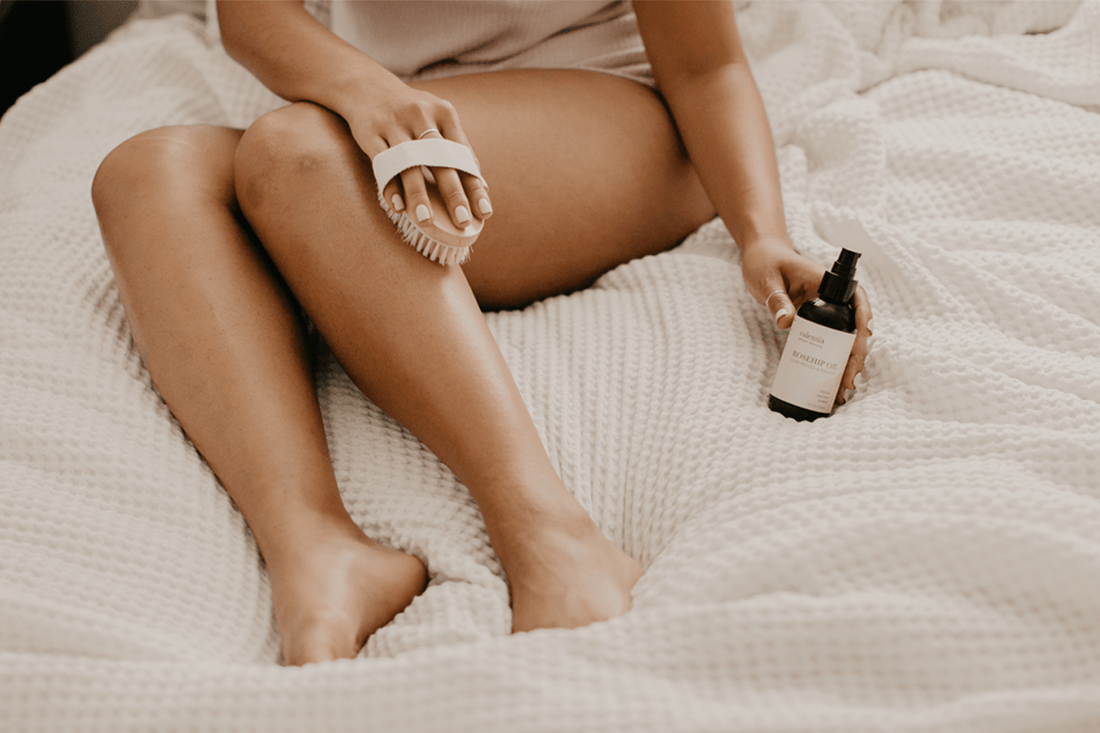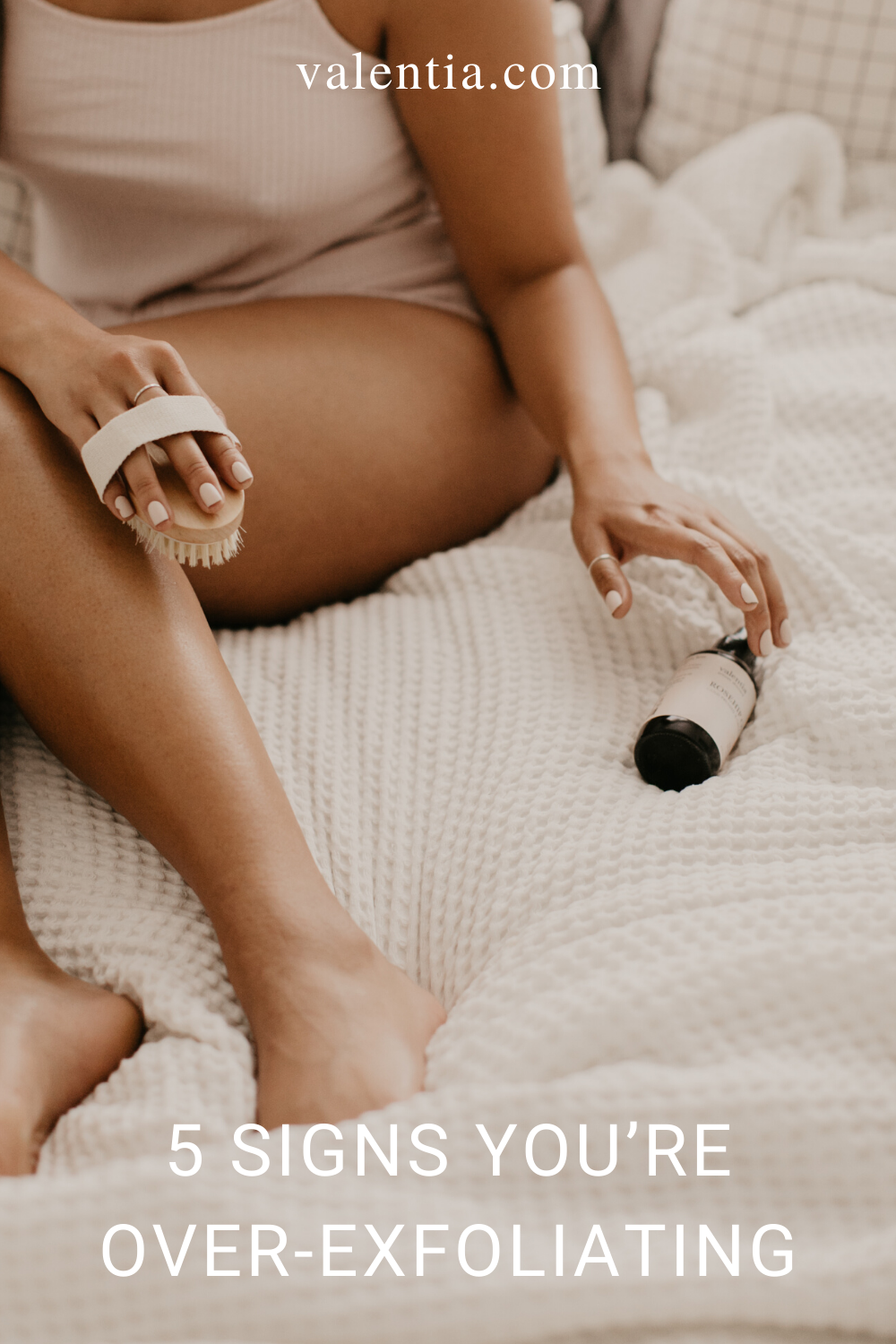
When Mae West coined the phrase, "Too much of a good thing is wonderful," chances are she wasn't talking about exfoliation. While the act of scrubbing yourself can feel fantastic, it can go too far—and result in the skin problems you’re trying to treat in the first place. The biggest ones? Inflammation and irritation. Skin might stay dry, flaky, or broken out, and the skin barrier—the outermost layer of your skin that’s supposed to hold in moisture and protect you from the elements—could be compromised. There’s also a possibility that the skin could be damaged with micro-tears, or small cuts, that are invisible to the naked eye but can also cause skin damage, or worse, infections.
Think you could be an exfoliation addict? Here’s what the worst offenders could do to your skin:
- Walnut scrubs: You wouldn’t think the humble walnut could be to blame for skin damage, but it’s true. The grittiness in some scrubs that smooth the skin can also scrape the skin—and that’s too aggressive for most of us.
- Pore strips: Ripping one of these strips off your nose and looking at the remnants of dry skin and blackheads is gross, yes, but oh-so-satisfying. Unfortunately, pore strips can leave your skin irritated and in some cases damaged, and can worsen conditions like rosacea and eczema.
- Glue masks: Sure, DIY beauty can yield great results—but please don’t mix up a mask with charcoal powder and glue. Glue is not meant for delicate facial skin, and can cause everything from an allergic reaction to ripped skin.
- Peels and brushes: While acid peels and motorized facial brushes can be used safely, the temptation is often strong to overdo either (or, worse, both). Side effects from frequent peel usage include skin irritation, dryness, and breakouts, and the same can happen if you use a brush too frequently, or use one without consistently cleaning it.
So step away from the abrasive scrubs and DIY peels, and watch out for these signs:
- Your skin hurts. Tingly and tight are well and good when you’ve just exfoliated, but hours later? That’s an alert you’ve overdone it.
- Your skin is flaky and/or dry. It’s tricky because flakiness and dryness can be treated with gentle exfoliation, but if those problems weren’t there before, or if they get worse, this could start a cycle that’s hard to undo. It’s also why you should follow your exfoliating with a hydrating or moisturizing product.
- “Red” is how you’re describing the color of your skin. While this might be the case immediately following an exfoliating product, if the redness lingers, that’s your skin asking for help.
- You usually have normal skin—and now it’s super-sensitive or you’re breaking out. Some exfoliation can prevent acne, but too much can lead to fragile, quick-to-erupt skin.
- Putting anything on your skin burns. That burning or itchiness is an indication your skin barrier is weakening and needs rehab ASAP.

If any of those sound familiar, it’s time to treat your body to the skin nurturing program it deserves. We suggest the following for a kinder, gentler exfoliation experience:
- Time off: Take a few days (or weeks) off from exfoliation to support returning your skin to its original state.
- Dry brushing: Dry brushing is an ancient practice that’s been enjoyed by cultures around the globe. A way to exfoliate and cleanse pores from head to toe, dry brushing also has invigorating effects.
- Niacinamide: This form of vitamin B3 is a key ingredient in our Vitamin B3 Serum. Niacinamide helps the skin retain its moisture barrier. Packed with some of the most powerful brightening botanicals on the planet, this serum tightens and brightens, for your healthiest complexion yet.
Now that you have a road map for exfoliating in a gentler way, your skin will be glowing, not to mention happier! When choosing your dry brush and serums, make sure to read labels and choose carefully. At Valentia, ours are cruelty-free, ethically sourced, free of GMOs, parabens, synthetic additives, and preservatives. Because your skin deserves nothing less.










